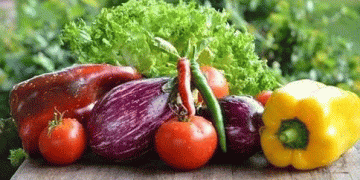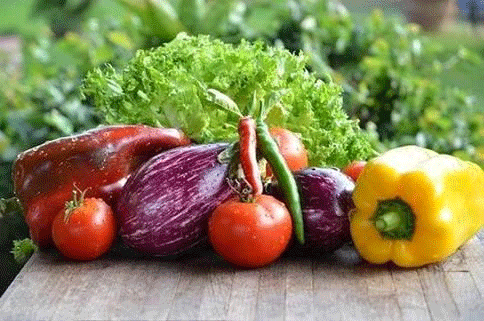Strong Performance for Spanish Vegetables, Except Eggplants
The 2023/24 season has brought mixed results for Andalusian vegetable producers. Despite a general price decline compared to the previous year, favorable market conditions have helped maintain profitability. Key factors include increased production, moderate inflation, and lower energy costs.
Price and Production Dynamics
Peppers:
The pepper production season concluded in early May with positive results. The average seasonal price was around €1.07/kg, marking a decrease from the exceptionally high prices of the previous year. Stable prices and a slight increase in production ensured good profitability for growers.
Tomatoes:
For the second consecutive year, the area dedicated to tomato cultivation expanded, driven by favorable prices and record highs until January. Early-season production in Andalusia was reduced due to planting delays, while Moroccan supplies were significantly cut back due to a heatwave and the ToBRFV virus. These factors supported Andalusian sales, with an average price of approximately €0.77/kg, excluding cherry tomatoes.
Cucumbers:
Cucumber growers experienced positive economic and production outcomes. The season ended with an average price of just under €0.82/kg, and supply increased by 4% compared to the previous year, with no significant price fluctuations.
Zucchini:
High zucchini production, up by 10-15% from the previous season, necessitated price reductions to manage surplus. The season concluded on a positive note with an average price of nearly €0.64/kg.
Eggplants:
Eggplants faced the most challenging market conditions. A 15-20% increase in production compared to the previous season led to a supply-demand imbalance, reducing profitability. The average price was about €0.53/kg, reflecting the oversupply situation.
Market Influences and External Factors
Weather and Energy Costs:
The season’s conditions were marked by delayed planting to avoid high summer temperatures and increased pest presence. Moderate inflation and lower energy costs also contributed to the favorable market environment.
Watermelons and Melons:
Producers of watermelons and melons benefited from high prices in May, compensating for lower yields due to slower production and increased demand driven by good weather across Europe. Prices initially dropped in late April due to cooler temperatures but rebounded strongly.
Mandarins:
Mandarin plantations in Peru, affected by temperature fluctuations, humidity changes, heavy rainfall, and a warm winter since 2023, continue to face pest challenges. Production is concentrated in 13 regions, with coastal areas contributing 60% of the total output. Lima (36%), Junín (30%), and Ica (20%) are the key production zones.
The 2023/24 season demonstrated the resilience and adaptability of Andalusian vegetable producers. Despite some challenges, such as the eggplant market imbalance, most vegetables saw stable or improved production and favorable economic conditions. Strategic planting adjustments and beneficial weather patterns played crucial roles in the season’s overall success.































